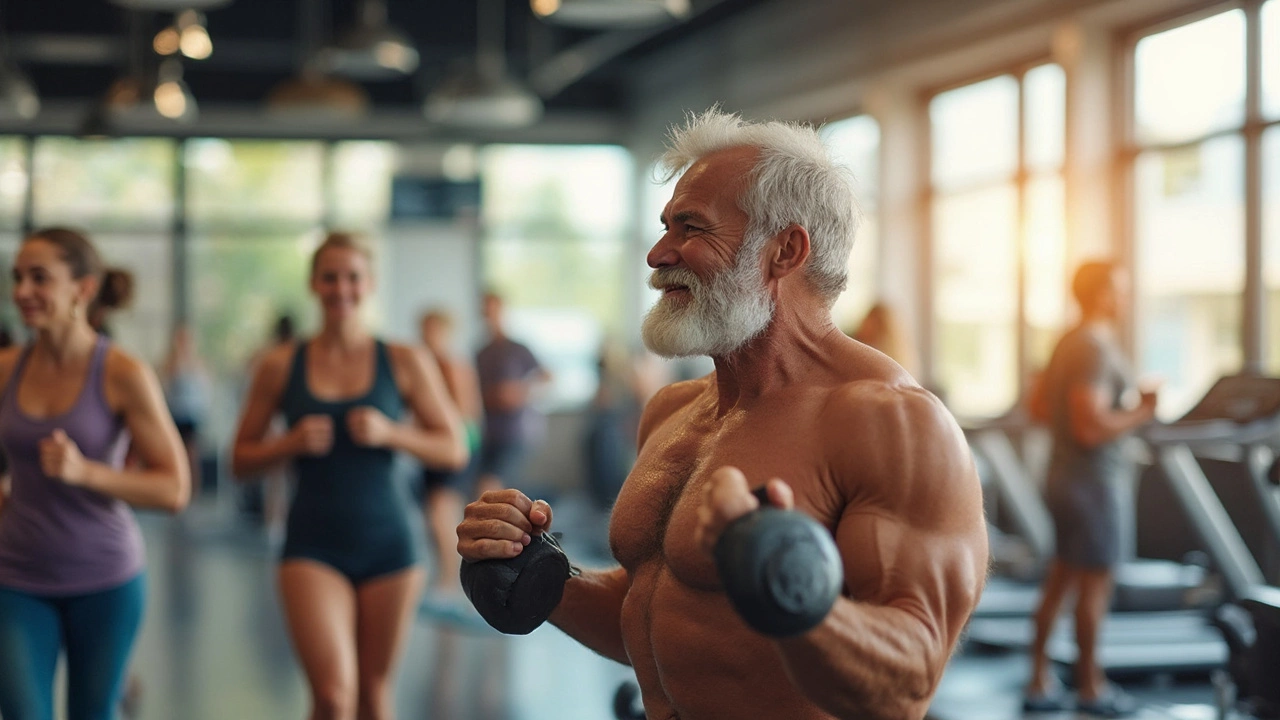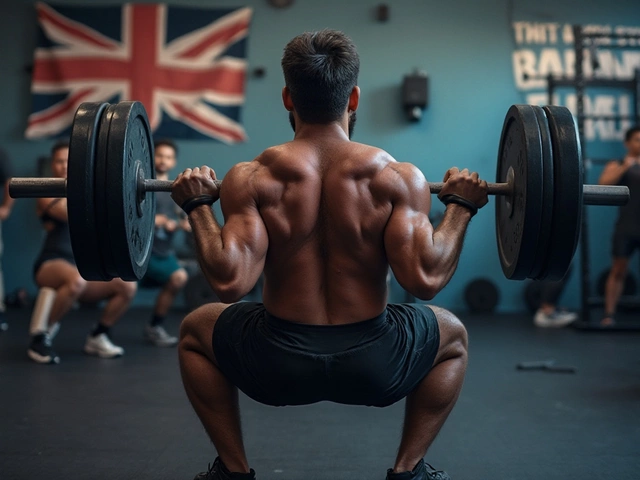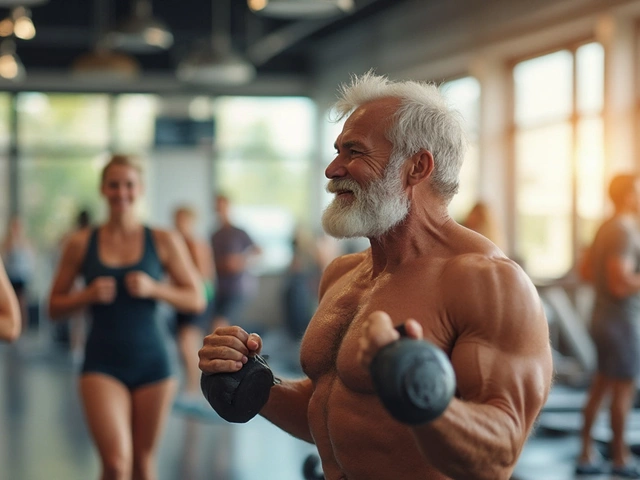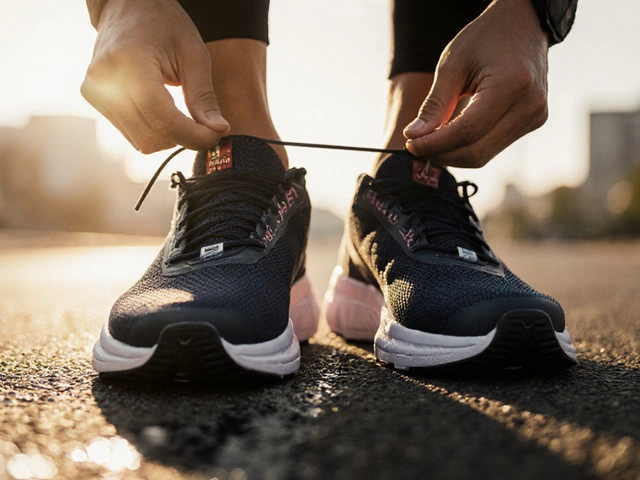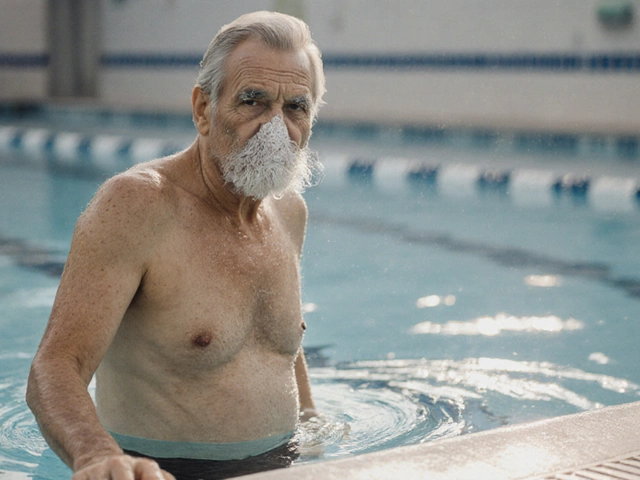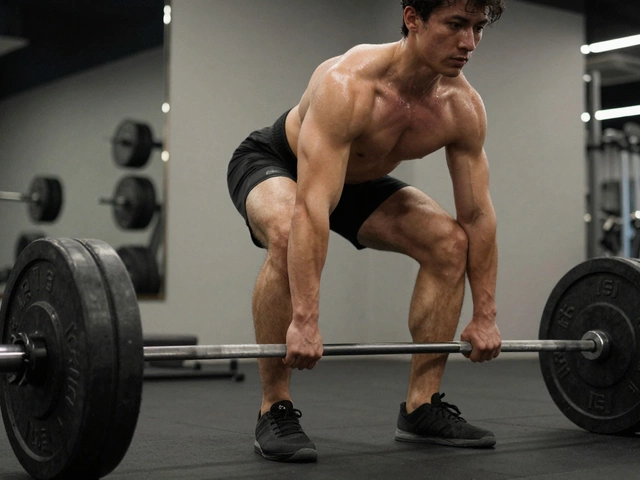What Age is Late for Gym?
So you’re thinking about hitting the gym but a little voice in your head whispers, “Am I too old for this?” This doubt is more common than you’d think, and it’s based on an age-old myth that fitness is only for the young. Here’s the good news: age doesn’t really matter when it comes to starting exercise. Science backs this up with research showing that physical activity can make a big difference in health at any age.
Starting the gym later in life presents special perks. It can boost your mood, keep your heart healthy, and strengthen those muscles and bones. Plus, older adults who exercise regularly report a higher quality of life. Despite common misconceptions, our bodies are capable of change and improvement well into our later years. So yeah, you can totally be that person who starts gym life in your 50s, 60s, or even 70s!
- Debunking the Age Myth
- Benefits of Starting Gym Late
- Tips for Older Gym Beginners
- Inspiring Late-Starters
Debunking the Age Myth
You’ve probably heard someone say, “Oh, it’s too late for me to start going to the gym.” But the idea that there's an age limit for getting into fitness is just a myth. It might seem like a young person's game due to social media feeds full of twenty-something influencers, but research says otherwise. Studies suggest significant health benefits from regular gym activity, regardless of whether you're hitting up spin class at 25 or picking up weightlifting at 65.
Science Backs It Up
The human body is pretty remarkable and can adapt to new physical activities even as we age. Harvard researchers found that people who start exercising later in life can still see major improvements in strength, mobility, and mental health. This means your age doesn't have to be a barrier to starting a gym routine.
Let’s look at data: a study from the Journal of Geriatric Physical Therapy observed older adults who engaged in resistance training. Their results showed a marked increase in muscle mass and bone density, both crucial for avoiding age-related ailments.
Fitness Benefits for All Ages
The benefits of starting gym workouts are universal. Younger people build endurance and strength, but older adults can experience lower blood pressure, improved balance, and even better mental sharpness. Age should never hold you back from reaping these rewards.
Flexibility and Adjustment
Worried about keeping up? Workout plans can and should be tailored. Lower-impact exercises like swimming or yoga offer great health benefits without stressing joints. Personal trainers often help older gym-goers find the right mix of strength training and cardio that matches their abilities.
In summary, starting at the gym later in life isn’t just viable; it's practical, beneficial, and can be a whole lot of fun. So, ditch those myths, lace up your shoes, and give it a go!
Benefits of Starting Gym Late
Thinking it’s too late to get into the fitness game? Think again. Starting the gym later in life can bring a mountain of perks! First off, folks who hit the gym tend to be sharper mentally. Research has shown that exercise can help stave off cognitive decline. Keeping the brain active is just as crucial as working on those muscles.
Physically, gym workouts improve your heart health and bolster muscular strength. A steady exercise routine can lower your risk of chronic issues like diabetes or heart disease. According to an inspiring study from the National Institute on Aging, engaging in strength training was linked to reduced mortality in older adults, proving it’s never too late to get fit.
Dr. Philippe Meyer, a gerontologist, states, "Regular exercise at any age plays a pivotal role in maintaining health and preventing disease. Older adults who exercise tend to live longer and have more active, independent lives."
Apart from these health benefits, the social aspect of joining a gym can’t be ignored. Meeting folks who share goals gives you that added motivation. It can be a new chapter filled with friends and fitness!
Physical Boosts
- Heart health: Regular workouts strengthen your heart and improve circulation.
- Better bones: Weight-bearing exercises can boost bone density, reducing risks of fractures.
- Increased energy: More activity often leads to feeling less fatigued and more alert.
Mental Edge
- Boosts mood: Exercise floods your brain with feel-good hormones.
- Reduces anxiety: Staying active is a natural stress-buster.
Remember, it's not about how late you start but how consistently you continue! So go ahead, put on those gym shoes, and enjoy the journey!
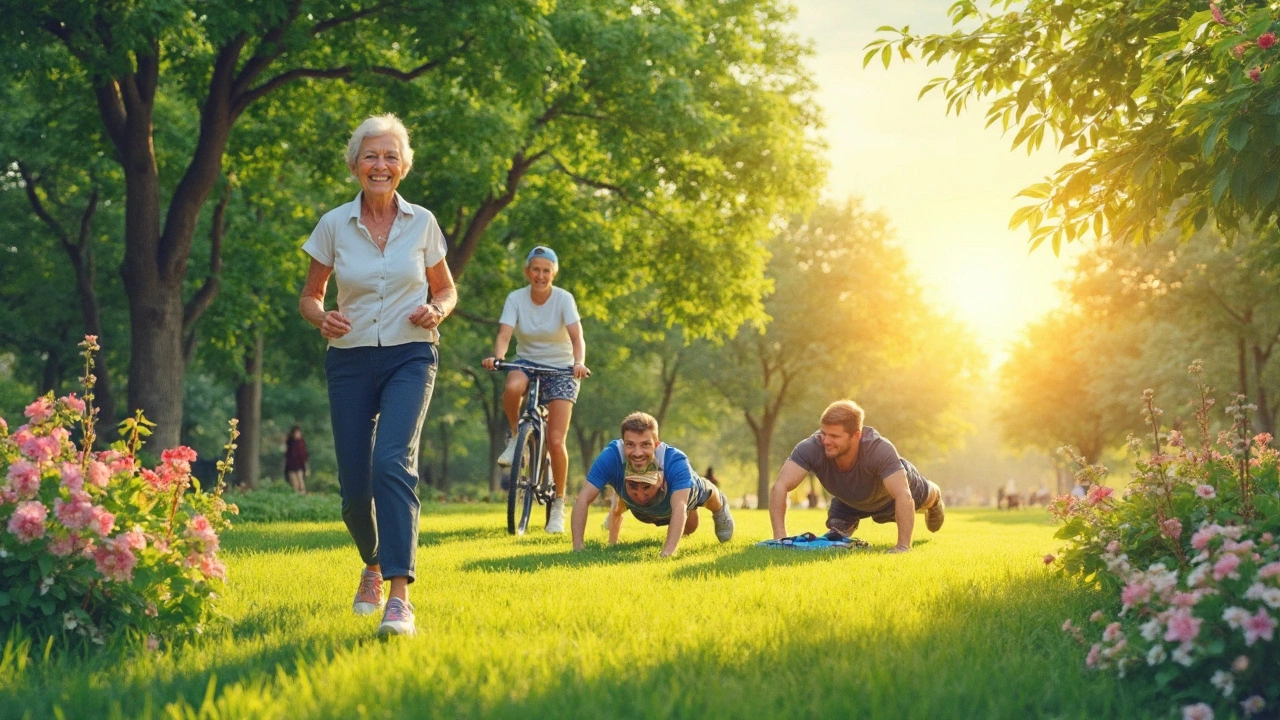
Tips for Older Gym Beginners
So you've decided to embrace the gym at a later stage in life, and that’s awesome. But before you jump onto the treadmill, there are a few pointers you might find helpful. Starting fitness routines at any age brings unique challenges and rewards, and for older beginners, a thoughtful approach can make all the difference.
Start Slow and Steady
One of the golden rules is to take it easy initially. Your body might not be used to regular workouts, so it's crucial to ease into it. Maybe start with 15-minute sessions and, as you get comfortable, gradually increase the duration and intensity. Listen to your body and don't rush—consistency over intensity is key here.
Focus on Strength Training
While cardio is great, strength training should be your best friend. It helps build muscle mass, which tends to decrease with age. Simple exercises using weights or resistance bands can improve muscle strength and bone density. You’ll find this especially important for maintaining mobility and balance as the years go by.
Keep It Varied and Interesting
You don't want your gym sessions to become a chore. Mixing things up with a variety of workouts can keep you motivated and prevent boredom. Try different classes, machines, or even outdoor activities. Remember, the goal is to enjoy moving your body.
Mind Your Nutrition
Older bodies have different nutritional needs. Eating a balanced diet rich in proteins, healthy fats, and carbs can fuel your workouts. Staying hydrated and getting enough vitamins and minerals is equally essential.
Seek Professional Guidance
Finally, consider working with a coach or personal trainer who has experience working with older adults. They can create a tailored routine that meets your needs and ensures correct form, reducing the risk of injuries.
Keep all these tips in mind, and you’ll be setting yourself up for a rewarding fitness journey, no matter when you start. After all, the only age limit is the one you create for yourself.
Inspiring Late-Starters
Stories of people finding their groove later in life can be incredibly motivating. And when it comes to fitness, there are some seriously inspiring tales. Take Ernestine Shepherd, for example. She mooched around in her gym gear until her mid-fifties, only to become the world's oldest living female bodybuilder at 80. Shepherd started her fitness journey at 56, proving it’s never too late to hit the gym with a vengeance.
Ever hear of Tao Porchon-Lynch? This dynamo was a yoga teacher well into her 90s, holding the Guinness World Record as the oldest yoga instructor. She began her yoga passion at a young age but didn’t start teaching until she was 73. Her story is a lesson in pursuing your passion, regardless of age.
Benefits Documented
Aspiring older fitness enthusiasts may benefit both mentally and physically. Studies show that people who start exercising later in life can still witness substantial health improvements. Regular activities can lower risks of chronic diseases like heart conditions and diabetes. It can also enhance mental well-being, reducing symptoms of depression and anxiety in older adults.
| Age | Activity Start | Improvement Noted |
|---|---|---|
| 60+ | Regular walking | Reduced risk of dementia by 30% |
| 70+ | Weightlifting | Increased muscle strength by 25% |
These real-life examples showcase that age is just a number when it comes to fitness and health. For those pondering if they’re too late, remember these inspiring late-starters. They didn’t just adapt to fitness – they thrived, soaring past perceived limitations and setting new standards.
